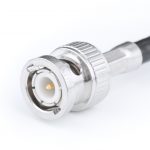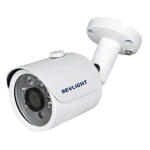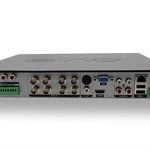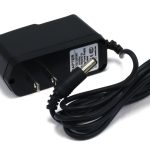Last Updated on April 13, 2025
Basic security guard training Unit 4 Lesson (E)
Introduction to CCTV System
A CCTV system (Closed-Circuit Television) is one of the most essential tools in modern security. It involves using video cameras to transmit footage to a limited set of monitors. These systems monitor and secure sensitive locations such as banks, stores, offices, warehouses, and industrial zones.
For every CCTV security guard, having solid knowledge and proper security guard CCTV training is essential to operating and managing the surveillance system effectively.
Why CCTV Is Important in Security
A properly installed CCTV system helps security guards:
- Monitor large or sensitive areas.
- Detect and prevent criminal activity.
- Record footage that can be used as legal evidence.
- Ensure the safety of employees and customers.
- Monitor high-risk or remote zones.
With effective security guard CCTV training, guards become skilled in surveillance operations and proactive response to incidents.
Where CCTV Is Commonly Used
- Retail stores to reduce theft and shoplifting.
- Banks and ATMs for 24/7 monitoring.
- Parking areas to track vehicle movement.
- Industrial plants to observe hazardous processes.
- Offices to ensure employee safety and productivity.
- Public events for crowd monitoring and incident control.
Types of CCTV Cameras and Equipment
A trained CCTV security guard must be familiar with the types of equipment:
- Stationary Camera – Mounted in one direction permanently.
- PTZ Camera – Pan, tilt, and zoom control for better tracking.
- Dome Camera – Used indoors; discreet and tamper-proof.
- Bullet Camera – Long-range outdoor surveillance.
- Monitor – Displays real-time or recorded video.
- Joystick – Used to control PTZ cameras.
- DVR (Digital Video Recorder) – Records, stores, and manages footage.
Core Components of a CCTV System
1. Security camera
Cameras are the eyes of the CCTV system. Common types include dome, bullet, PTZ, and covert cameras. They transmit footage to the DVR for storage or live monitoring.
2. DVR
The DVR captures and stores video from each camera. It allows playback, backup, and configuration of the cameras. DVR systems typically support 4, 8, or 16 camera channels.
3. CCTV cable
Power Cable: Supplies electricity to the camera.
Signal Cable: Transmits footage to the DVR system.
4. BNC Connectors
 These connectors link the CCTV cables to the DVR and allow secure signal transmission.
These connectors link the CCTV cables to the DVR and allow secure signal transmission.
5. CCTV Power Supply
Converts high voltage to suitable camera power (usually 12VDC or 24VAC). It ensures stable operation and protects against power surges.
How Security Guards Use CCTV
Security guard CCTV training involves understanding procedures such as:
Monitoring live footage from multiple cameras.
Reporting unusual or suspicious activity.
Identifying individuals or incidents using footage.
Controlling PTZ cameras to follow a person or area.
Documenting incidents based on recorded footage.
Communicating with supervisors or police with evidence.
Legal and Ethical Considerations
Security guards must follow local laws when using CCTV:
Never install cameras in private spaces (e.g., restrooms).
Always protect and restrict access to recorded footage.
Footage should only be shared with authorized personnel or police.
Understand and respect privacy rights.
Daily CCTV Maintenance Checklist
| Task | Status |
|---|---|
| Clean camera lenses | ✅ |
| Check the camera angle and focus | ✅ |
| Ensure all cameras are online | ✅ |
| Test DVR recording | ✅ |
| Inspecting cables and connectors | ✅ |
| Confirm timestamp accuracy | ✅ |
Common Surveillance Challenges
- Camera blind spots
- Power failure or voltage fluctuation
- Storage full on DVR
- Night vision issues
- Camera tampering
Guards must report technical issues immediately and follow up on maintenance requests.
Sample Incident Report Based on CCTV
Date: 13/04/2025
Time: 21:45
Camera #03 – Parking Lot
Incident: An individual was seen attempting to open parked vehicles. The subject appeared suspicious and left the area upon noticing the camera. The footage was saved and reported to the supervisor.
Action Taken: Alerted on-duty staff, saved recording, and prepared report for management.
Benefits of CCTV for Security
- More cost-effective than hiring multiple guards.
- Prevents crimes through visible surveillance.
- Reduces employee theft or misuse of resources.
- Provides reliable legal evidence.
- Boosts employee and customer confidence.
- Encourages professional behavior.
- Enables efficient remote monitoring.
Conclusion
The CCTV system is a powerful surveillance tool for every security professional. Through security guard CCTV training, guards can maximize its benefits to protect people and property, detect suspicious behavior, and respond effectively to incidents. Every CCTV security guard must be confident in camera operations, legal handling of footage, and use of the system in daily security tasks.





